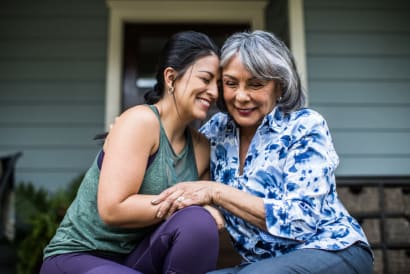
Caregiving
Whether you give care or are in need of it, you deserve individualized care solutions.
Becoming a caregiver requires learning on the fly. Finding the right level of care for you also takes patience and adjustments. Our expert advice and information can help you your loved ones prepare for your new roles.
Caregiving
Important Resources
You shouldn’t feel like you’re on your own, either as a caregiver or as someone who is searching for caregiving services. The following resources can help aging adults and caregivers alike feel empowered, informed and connected.
Read Our Featured Guides

Find and compare 2025 Medicare Advantage (Part C) plans and Medicare Supplement (Medigap) plans available where you live. Select your state to find out more about Medicare plans near you and learn how to sign up for Medicare in your state.

Answer questions such as "When is Medicare Open Enrollment?" or "How do I enroll in 2025 Medicare?" Don't miss certain Medicare enrollment period deadlines, or you may be subject to higher costs, late enrollment penalties or lapses in coverage.

Between 173.5 million and 183.5 million doses of flu vaccine have been prepared for the 2022-2023 flu season in America, and it's more important than ever for people to get vaccinated this flu season as the nation continues to battle COVID-19. Learn more about this year's vaccine and how you can get it.


